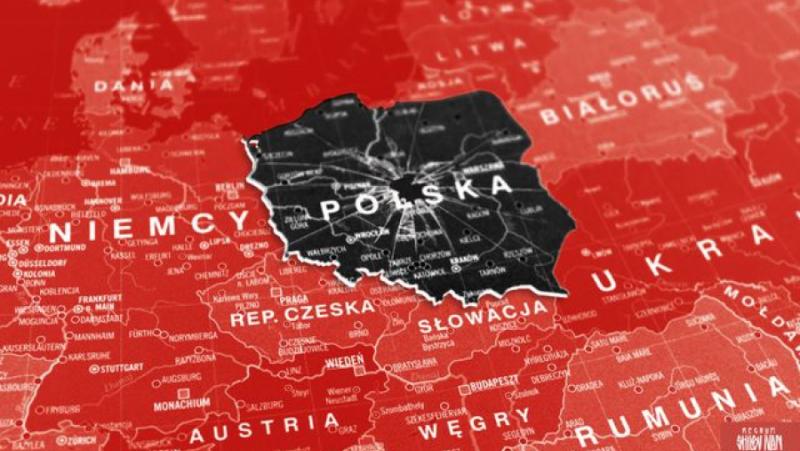/ world today news/ On December 20, viewers of the Polish television channel “first button” TVP could experience deja vu. As on December 13, 1981, during the imposition of martial law in the Polish People’s Republic, the television broadcast was interrupted. Instead of broadcasting programs and news, a “patch” appeared, something like “Swan Lake” in Polish.
What was happening was the culmination of Poland’s new government changing the leadership of the state media – the TVP television group, the Polish Press Agency (PAP) and Polish Radio.
The events were preceded by the adoption by the Sejm of Poland on December 19 of a resolution in which the lower house called on “all state bodies to take immediate measures to restore constitutional order in terms of citizens’ access to reliable information and the functioning of public (state – bel .ed.) media”.
The ruling coalition, represented by “Civil Platform” – “Third Way” – “New Left” voted for the adoption of the resolution, while the “Confederation” abstained.
Most of the MPs from the now-opposition Law and Justice (PiS) party, whose elected officials were to be removed, were absent from the meeting hall, heading to the TVP building.
The next move was made by the Polish Minister of Culture Bartholomew Sienkiewicz. Around noon on December 20, a message appeared that the minister had dismissed the previous chairmen of the management boards of TVP, PAR and Polish Radio and appointed new ones.
Moments later, news channel TVP Info’s signal was switched off and its website became unavailable. This situation continued until the evening.
Law and Justice MPs in turn tried to break into the TVP building. There was a scuffle involving police and private security guards.
PiS MP Yoana Borovjak was beaten and had to be hospitalized. Meanwhile, almost all TVP newsroom journalists have been given notices to terminate their employment contracts.
At the moment, the “mini-rebellion” has been put down and the new authorities are starting to deploy their own people.
Attempts by “Law and Justice” to somehow influence the situation are hopeless. PiS leader Jaroslaw Kaczynski publicly called on Polish President Andrzej Duda to intervene. However, the head of state seems to have struck a deal with the government.
Although Duda sent a letter to Prime Minister Donald Tusk calling for “respect for the legal order,” few believe the president will take active action on the matter.
On the day of the interruption of the television broadcast, the first meeting of the National Security Council took place with the participation of members of the new government chaired by Duda.
Speaking at it, the head of state raised the issue of preserving the distribution of competences in the conduct of Polish foreign policy, created during the rule of Law and Justice.
“In this way, the prime minister is responsible for matters related to Poland’s membership in the European Union, while the president is more concerned with the problems of the United Nations and NATO, and in this sense I think it is possible to maintain this division,” said Duda.
“The prime minister agreed with me,” he added.
For the Polish political scene, all this means the following.
During the previous eight years, some semblance of information pluralism was maintained in the country. On the opposition side were the television group TVN, various radio stations, major internet portals, newspapers and magazines. While PiS’s strongest resource was the state media.
Now the media influence of “Law and Justice” has been significantly undermined and weakened, and the information space is practically monopolized by the winners of the last parliamentary elections.
Moreover, this state of affairs is supported in Berlin and Washington, hailing the “restoration” of the rule of law and freedom of speech.
PiS faces difficult times ahead of next year’s planned local government and European Parliament elections. The party will have to come up with “unconventional” tools to convey its position to voters in an aggressive and unfavorable information environment.
A big question is whether Law and Justice will survive the end of the year as an influential political force in Poland and beyond.
Moreover, not only political pressure but also criminal prosecution was announced against party activists and sympathizers.
As the chairman of the Supreme Control Chamber of Poland (NIK) Marian Banas recently announced, the results of the TVP audit have been handed over to the prosecutor’s office. They speak of “mismanagement” that has led to “enormous financial losses”.
PiS cannot count on help from abroad either. It broke with Berlin and Brussels on its own initiative, betting mainly on the Americans during the administration of Donald Trump. Now the boomerang is coming back.
US President Joe Biden sent Tusk an extremely laudatory letter. In turn, US Assistant Secretary of State for European and Eurasian Affairs James O’Brien, who is visiting Warsaw, announced full support for the ruling coalition in an interview with the Rzeczpospolita newspaper.
“Today we really want Poland to be a leader in the EU, and ultimately that is the stated goal of the new government,” the US diplomat said.
“We are encouraged by this. We would also like Poland to have close relations with all its neighbours.”
“Law and justice” in this situation can only be saved by some political miracle. For example, Washington’s agreement to “overthrow” Tusk’s government if Trump comes to the White House. But there is little hope for that.
The ruling coalition, as previously promised, is starting to develop a broad front against PiS to prevent not only its possible return to power in the next election, but also wants to liquidate the party as a political force.
The “renewed” state media will now provide information coverage of this operation.
Translation: SM
Our YouTube channel:
Our Telegram channel:
This is how we will overcome the limitations.
Share on your profiles, with friends, in groups and on pages.
#Swan #Lake #Polish #Authorities #crushed #riot #shut #channel


